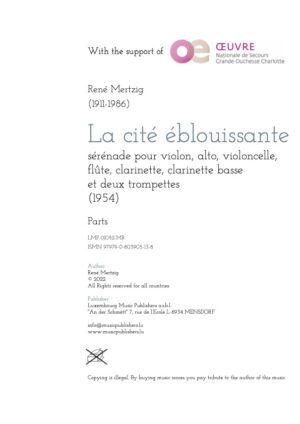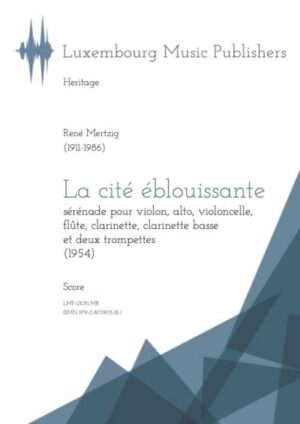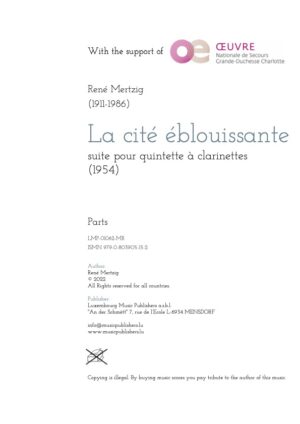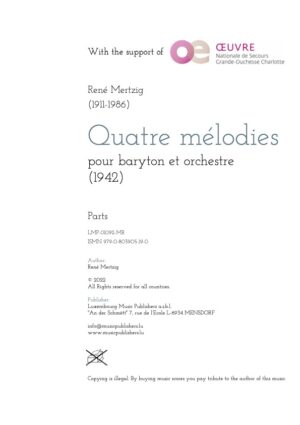René Mertzig was born on August 11, 1911 in Colmar-Berg into a family of musicians. He took piano, violin and music theory lessons at the Luxembourg Conservatory, and went on to perfect his skills at the Brussels Conservatory, where he studied composition. alongside the violin and piano.
After his musical studies in Brussels, René Mertzig became a member of the RTL Symphony Orchestra, first as a violinist, later as a pianist. He remained there for more than 40 years. As a composer, René Mertzig left about hundred compositions, ranging from chamber music to songs and symphonic music.
His work can be divided into two major phases:
The first works (1940-1952) such as “Four melodies for baritone and orchestra” or “Rapsodie chorégraphique” still bear witness to the neo-romantic and impressionist influence. Then follows a transitional period during which Mertzig composes works such as “Cycle symphonique”, which clearly shows expressionist tendencies.
The second phase gives a glimpse of a much more personal style: It is “Symphonie des Impressions Vives” for example, written in 1953, or “La Cité dazzling” (1954). This was followed by works such as “Second Trio for Piano, Violin and Cello” (1955) and “Trois Esquisses” (1955), “Enfantines, poems for narrator and orchestra” from a text by Edmond Dune (1956), “Le Tambourin and the guitar, dramatic quartet for 4 people, tambourine and guitar” (1958), and in particular “String quartet” (1961), which was one of his most precious works.
But René Mertzig was not only a more than gifted composer; he was also at the origin of many important initiatives in Luxembourg musical life. Thus he created the “National Society for the Propagation of Symphonic Music” (1955), the “Chambre Syndicale des Arts et des Lettres” (1952) and the “Trio luxembourgeois’, (1940, with Carlo Kaufhold and Camille Beicht.
Loll Weber will also say: “René Mertzig, it should be noted, has nothing of a revolutionary, neither in his aesthetic perspective, nor in the use of his means. In addition, he refuses any movement of mode or any so-called avant-garde school method. And if even in his most successful works, the influence of a Debussy or a Ravel remains constantly perceptible, René Mertzig has always avoided the preconceived formulas of easy imitation. He sought personal expression, an individual style, based on respect for tonal tradition, on artisanal substance and on human honesty in the best vein. “To be honest, the meaning and value of René Mertzig’s message are based on craftsmanship and sincerity.”
René Mertzig died on September 17, 1986 at the age of 75.
Loll WEBER





